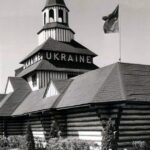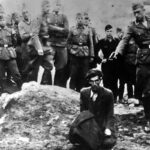BY ALEXANDER J. MOTYL, is a professor of political science at Rutgers University-Newark specializing in Ukraine, Russia and the USSR. He is the author of 10 books of nonfiction, as well as Imperial Ends and Why Empires Reemerge.

It’s time to start taking the potential disintegration of Russia seriously.
A number of analysts see the shattering of the Russian Federation as a possible aftermath of Vladimir Putin’s catastrophic war in Ukraine.
Although the world would be better off with a much-weakened Russia, its fall may not go smoothly.
The Jamestown Foundation’s Janusz Bugajski would probably agree with this assessment: “as a rump state, under intense international sanctions and shorn of its resource base in Siberia, [Russia] will have severely reduced capabilities to attack neighbors.”
As a result, “NATO’s eastern front will become more secure; while Ukraine, Georgia and Moldova will regain their occupied territories and petition for European Union and NATO integration without fear of Russia’s reaction.” Moreover, “countries in Central Asia will also feel increasingly liberated.”
Washington Post columnist David Ignatius holds a gloomier view: “A fragmenting, demoralized Russia is a devil’s playground. … Russia’s internal disarray poses a severe dilemma for Putin, but it’s very dangerous for the West, too.”
The Carnegie Endowment for International Peace’s Tatiana Stanovaya occupies a middle ground, while leaning toward Ignatius. She writes that, on the one hand, “the Kremlin will be wrestling simultaneously with…a deepening crisis of Putin’s leadership, a growing lack of political accountability, increasingly ineffective responses by the authorities to new challenges, an intensifying fragmentation among elites, and a society that is growing more antiestablishment.”
On the other hand, although “the world will have to contend with a more dangerous and unpredictable Russia,” it’s likely that “this inward turn could lead to a more pragmatic approach to the war against Ukraine.”
Bugajski’s optimism derives from his focus on a post-disintegration Russia, one that is a rump state under international scrutiny, lacking the economic and military resources it would need to pursue an imperialist agenda. Ignatius’s pessimism, like that of Stanovaya, derives from their focus on the process of Russia’s disintegration, which, even in the best imaginable circumstances, would be very messy. Both Ignatius implicitly and Stanovaya explicitly worry about a less predictable Russia, which would presumably be more dangerous.
So, who is right?
Bugajski is correct to argue that a rump Russia reduced to the area bounded by St. Petersburg, Moscow and Nizhny Novgorod would immediately cease being a major geopolitical player and thus a threat to any of its neighbors — especially if the latter band together with the West. Life within that state might be poorer, but it would also likely be safer and more secure.
And even if rump Russia retained all of its nuclear weapons, it would be in no position to use them, except in the highly unlikely event of a coordinated attack by its neighbors.
But Ignatius and Stanovaya are also right to worry about the path to Russia’s final disintegration. Putin is trapped and possibly inclined to take desperate measures. Russia’s former president and prime minister, Dmitry Medvedev, is, as his unhinged missives suggest, arguably insane — and he is not, alas, alone in his insanity. Russia’s elites are fractured and fragmented, lacking a cohesive and coherent vision of their country’s future; no one knows what to do about the disastrous war with Ukraine.
As Stanovaya says, “these developments are transforming Russia into a far less cohesive entity, one rife with internal contradictions and conflicts, more volatile and lacking predictability.”
But why is internal disarray and unpredictability a problem for the West — or, for that matter, Ukraine, or any of Russia’s other neighbors?
Russia has been in disarray for 30 years. True, the Boris Yeltsin years in the 1990s were especially difficult, but Putin has decidedly failed to build a cohesive society and functioning economy. A repressed society may be more pliant, but it is not cohesive and stable, as the Soviets learned during perestroika.
A dirigiste economy may enable the authorities to funnel resources toward whichever projects they want, but it is not therefore more functional. Putin did succeed in building a stronger regime and state, but even that success has been deceptive. It’s clear now that strengthening the forces of coercion while permitting the bureaucracy to run roughshod and seize rents is no way to promote state strength, but it is an excellent way to promote corruption and self-enrichment.
In sum, post-soviet Russia has always been, in Stanovaya’s phrase, “rife with internal contradictions and conflicts.” The difference is that now they’re visible.
Post-soviet Russia has also been unpredictable. Who thought Yeltsin would open fire on the parliament? That an unknown KGB officer would succeed him? That that unknown KGB officer would destroy several buildings inhabited by hundreds of Russians in order to consolidate his rule? That he would imprison and then free Mikhail Khodorkovsky? That he would launch a war against Ukraine in 2014 and relaunch it in 2022? That he wouldn’t crack down on a putschist mercenary leader who led an aborted coup attempt?
Putin has always been appreciated for his ability to outplay and surprise the West. What is that, if not unpredictability? Is unpredictability likely to increase if Russia experiences disintegration? Or is the opposite more likely — that, as both Ignatius and Stanovaya predict, Russia will become more repressive at home, that Putin will become more desperate, that the war will remain a quagmire for Russia and a liberation struggle for Ukraine, and that Putin’s rule and regime are headed for oblivion?
Russia’s neighbors and the West have been living with a deeply unstable and unpredictable Russia for three decades. Whatever the reasons for this state of affairs, there is almost zero likelihood that Russia will suddenly shed its instability and unpredictability and stop its slide toward disintegration. As Bugajski, Ignatius and Stanovaya recognize, instability and unpredictability are a product of Russia’s internal affairs. As such, they will continue to take their course, regardless of what the West or Ukraine do.
All that the West and Ukraine, as well as Russia’s other neighbors, can do is win the war, insulate themselves from Russia’s mayhem and imagine what will need to be done to make sure that Bugajski’s vision proves durable.






